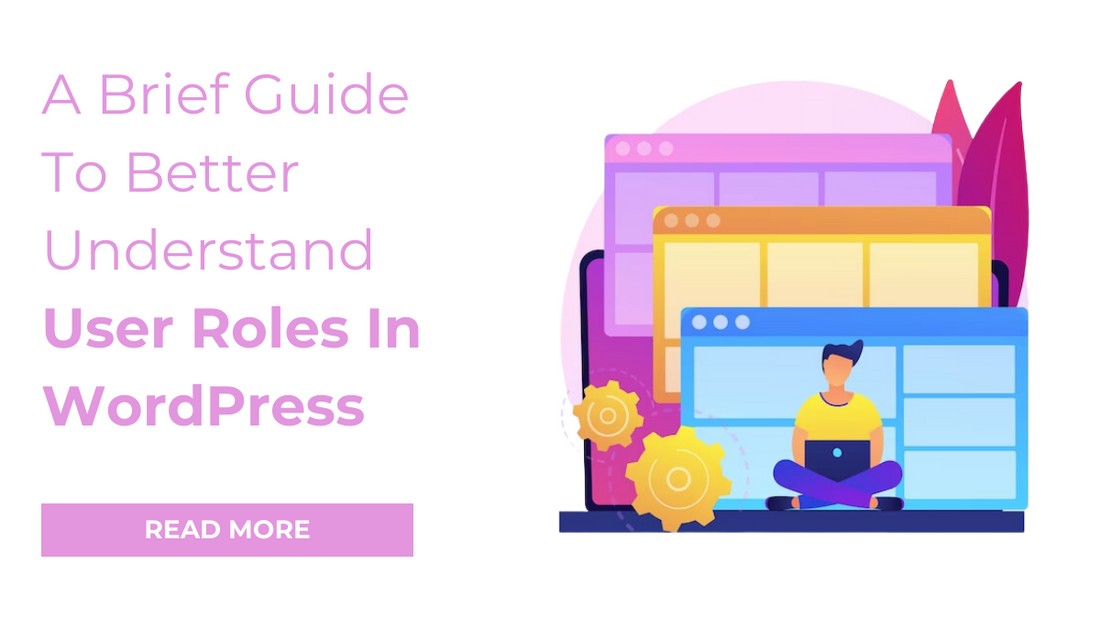If you own a WordPress website and want to make it accessible to multiple users, it becomes significant to properly assign the different roles to them. WordPress makes it possible by allowing five default user roles. Each of these user roles in WordPress has its own standards. It helps the users better understand their roles and doesn’t allow any unauthorized user to perform any kind of activity on your WordPress website. Get to know those user roles in this article post.
By default, WordPress offers the following five user roles –
- Administrator
- Editor
- Author
- Contributor
- Subscriber

It’s significant to understand the permissions given to the different user roles in WordPress if you want to manage your website by multiple users. Let’s go deep into understanding each user role better.
Administrator

The administrator plays the major role in all other WordPress user roles. When a website owner installs WordPress, by default, he gets assigned to this user role. The administrator can perform anything on his site. He can work on the themes, plugins such as installing, editing, and deleting them. He can work on the existing and new post pages. The administrator has the authority to manage the different users, alter the user data such as the name and password of the user. Additionally, he can remove the other administrators. So, you should take care of assigning such a powerful role to a responsible person only.
Editor
The editor role in WordPress can access the content of your site including the pages, blog posts, comments, and the media files. The person who has been assigned this user role can create, edit, draft, publish, or remove the WordPress posts on your site. No matter by whom the posts are written, he can make changes in the content. Furthermore, he has the authority to approve or remove comments, upload or remove media files on your site. However, he cannot perform any activity with regards to theme installation, activation, or deactivation. Neither he can add a new user nor remove the existing ones.
Author
The author role in WordPress allows users to work on their posts such as writing new, editing, and publishing them. Authors can only remove their own posts and not those rewritten by other authors. They can only assign the existing categories and tags to their posts rather than creating new ones. Also, they have the authority to upload media files to their posts. However, they lack the access to moderating the comments and working on plugins, themes, settings, and other user profiles.
Contributor
The users with contributor role in WordPress have access to edit and post their own posts but can’t publish or remove them. Similarly, a contributor cannot form new categories and tags, or upload media files. This is a limitation since the regular contributors will require editors and authors to get their files uploaded. Furthermore, they can assign any of the available categories and tags to their posts. They can only view the comments given to their posts but can’t moderate them. A contributor does not have the permission to control the settings page, plugins, and themes.
Subscriber
This is the default role assigned to each user who has registered to your WordPress website. He only has permission to log in to your site and update his own user profile. He can modify his password whenever he wants to, can read the content, and leave comments on your site. A subscriber does not have the permission to write posts, control site settings, other user profiles, and view comments.
The Super Admin!

A WordPress multisite network enables this user role. The super admin has the authority to add and remove websites on a multisite network. He can install WordPress themes, plugins, control site users, manage website updates and upgrades, and all other activities that are performed by regular administrators.
Understanding the different user roles in WordPress is essential to improve the security of your WordPress website and maintaining all the users in an organized manner. VWThemes understands the role of every user and has enabled the user role feature in its Premium WordPress themes. All the themes developed by VWThemes excel in multiple business niches and make every online business that is built on them flourish in less time. Get our themes, assign different user roles and go ahead managing your website seamlessly.












